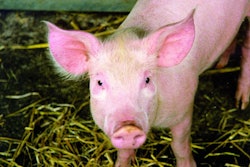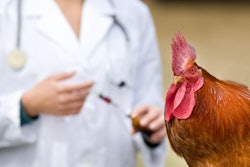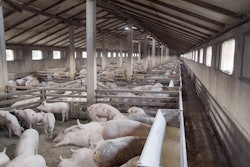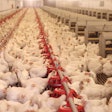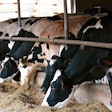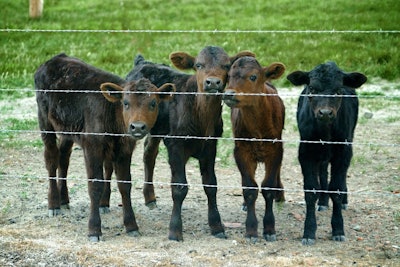
Exposure to wildfire smoke triggers an inflammatory response and negatively effects the metabolism of calves, according to a new study from the University of Idaho.
University researchers began tracking key metrics from the calves in July, before the northwest wildfire season typically begins, according to Amy Skibiel, an assistant professor in the College of Agricultural and Life Sciences at the University of Idaho. As wildfires began to produce smoke that drifted into Idaho, researchers collected data both on how much smoke was in the air, and on how the calves reacted. The data suggest that exposure to wildfire smoke was associated with more coughing, eye irritation, and with more immune cells in the blood, suggesting the calves had an inflammatory response to the smoke. Researchers also saw changes in blood metabolites that suggest a metabolic response, likely because the calves were using more energy in order to mount an immune response to the smoke, Skibiel said.
Skibiel said the research team chose to study calves based on some preliminary data that indicated pre-weaning exposure to wildfire smoke could impact calves productivity later in life. Previous research by Skibiel's team determined that wildfire smoke triggered reductions in milk production that lasted at least a week after the smoke lifted, but research on the impact of wildfire smoke on livestock remains limited.
Skibiel's team received a $772,000 grant from the U.S. Department of Agriculture's National Institute of Food and Agriculture in April in order to continue their work on the impact of wildfire smoke on the dairy industry. Skibiel said the team hopes to learn more about the impact of wildfire smoke on cows' vulnerability to disease, and will begin to investigate potential mitigation strategies that livestock producers could employ to protect their herds from wildfire smoke events, which are expected to increase in both frequency and severity in the decades to come. They also hope to begin to identify how much wildfire smoke is necessary to impact the health of cattle.
Given the limited research on mitigation strategies, Skibiel said she is currently hesitant to make suggestions beyond some basic measures producers could take, such as ensuring cattle have access to adequate water during smoke events, and avoiding moving or exercising the animals when smoke is present. However the University of Idaho is currently developing a website to collect and disseminate the latest information on mitigating the effects of wildfire on livestock.


